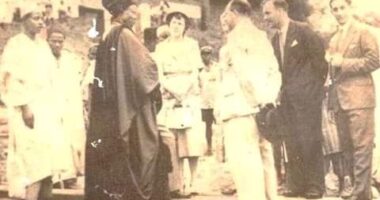Two years before Nigeria’s independence, in the heart of London, the United Kingdom, Kudirat Motonmori Olatokunbo Kekere-Ekun, a name that would resonate through the corridors of Nigeria’s justice system, was born.
But her roots are in Lagos, where both her parents are indigenes. Born on May 7, 1958. she is the eldest of eleven siblings in a polygamous home. Her father, Hassan Adisa Babatunde Fasinro, was also a lawyer and politician, while her mother, Winifred Layiwola Ogundimu (née Savage), is a UK-trained nurse.
Fasinro, popularly called HAB, was a senator representing Lagos in the second republic and the first clerk of the Lagos City Council. Having a father who is a lawyer may have influenced Kekere-Ekun’s passion for the legal profession.
She commenced her secondary education in 1970 at Queens College, Lagos, and studied law at the University of Lagos from 1977 to 1980. She then proceeded to the Nigerian Law School and was called to the bar in July 1981. After that, she underwent the compulsory National Youth Service Corps (NYSC) from 1981–82 at the ministry of justice in Benin City, Edo (then Bendel state).
Upon completing her service year, she proceeded to the London School of Economics and Political Science (LSE), obtaining a master’s degree in law in 1983.
NIGERIA’S SECOND FEMALE CJN
Kekere-Ekun passed through the system, building capacity through every phase of her career to what would become its zenith in the Nigerian judicial space. She started her ascent on the ladder of the judicial hierarchy as a senior magistrate Grade II, Lagos, in December 1989 and rose to become a high court judge in July 1996.
She was then promoted to the court of appeals in September 2004 and served as a member of its ICT committee between 2011 and 2013.
In 2013, Kekere-Ekun, fondly called Young Toks, was appointed a Supreme Court justice. She is the fifth and youngest female to be appointed as a justice of the Supreme Court of Nigeria. She was made for this — to bring honour to her family, to women, to black women, and to her nation through hard work and servitude — a force to reckon with, a model worthy of emulating.
Kekere-Ekun is the second female to emerge as CJN in Nigeria after Aloma Mukhtar, who held the position between July 2012 and November 2014. Interestingly, it was Mukhtar who swore in Kekere-Ekun as a supreme court justice in 2013.
Some describe her as incorruptible, apolitical, and a disciplinarian; others say Kekere-Ekun’s character is as revered as her strength. In an interview, Adegboyega Awomolo, a senior advocate of Nigeria (SAN) and chairman of the body of benchers, painted a portrait of a woman of impeccable integrity, a jurist unyielding in her pursuit of justice.
Awomolo said Kekere-Ekun is a disciplinarian and would make an exemplary chief justice.
“Justice Kudirat Kekere-Ekun is a disciplinarian. She is disciplined in every respect. She is not frivolous in any way. She is apolitical. In other words, she is not a politician. She is free of political encumbrance or baggage. Because she is free of that political garbage, she is going to be very professional. I can assure you. She will be very professional,” Awomolo said.
“So, I am expecting a Chief Justice of Nigeria that will do us proud, that will maintain the integrity of the bench, and that will work together with her colleagues in the Supreme Court. She is not politically inclined. I’m hoping that she would be an exemplary chief justice. Exemplary in character. Exemplary in professionalism. What else do we expect? Let’s wait for her time and applause when she leaves.”








